Updated 3 weeks ago
Net metering vs. batteries: what makes the most financial sense?
Written by
Ana Almerini
Find out what solar panels cost in your area
There are two main ways to use excess power that your solar panels produce: sell it back to the utility via net metering, or store it for use in a solar battery.
If your state offers full retail net metering, you can probably skip the battery as it won’t save you any additional money on your electricity bill. If the utility bills solar customers using a method besides net metering, a battery makes more financial sense, as it’ll give you the full value out of each kilowatt-hour of energy stored.
You need to consider the type of net metering your utility offers, electricity prices near you, and how much a battery costs to truly decide if you should stick with net metering or get storage.
What is net metering?
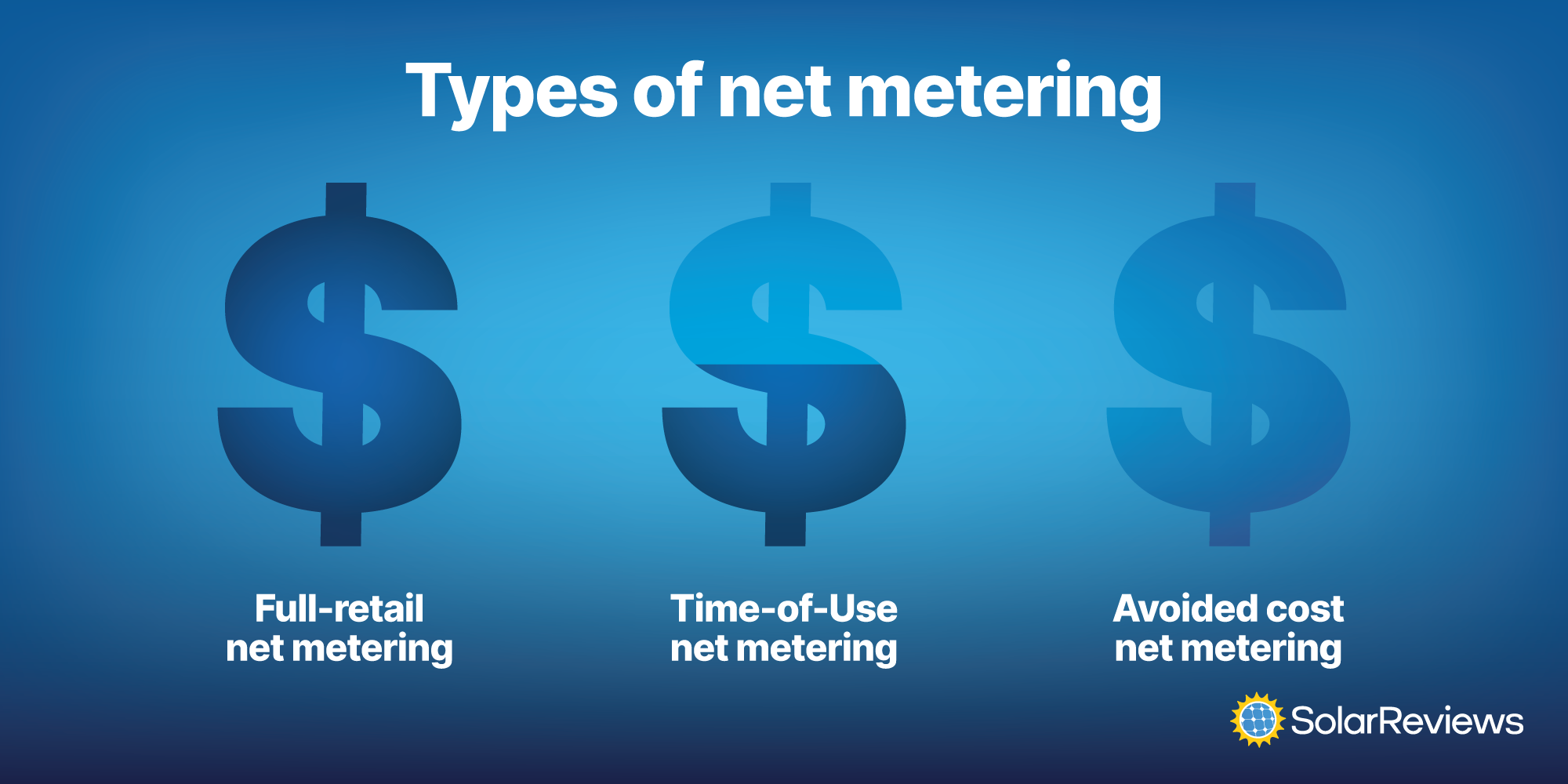
Net metering is a billing structure that incentivizes homeowners to install solar panels by purchasing excess solar power the panels generate.
Utility companies don’t follow all the same rules when it comes to billing solar customers. Usually, there are three types of net metering you may come across:
Full-retail net metering
Time of Use net metering
Avoided cost net metering
1. Full-retail net metering
With full-retail net metering, utilities value excess solar energy at the full retail rate of electricity.
So, if your panels generate more electricity than your home uses, the extra energy gets sent to the utility, and you’ll get a credit equal to what the utility charges for electricity.
Full-retail net metering is the only true form of net metering. Any other billing structure is technically not net metering, but it may still be called that.
Examples of states that require full retail net metering are New Jersey, Oregon, and Florida.
2. Time-of-use rate net metering
Time-of-use rates vary based on energy demand. Electricity is more expensive during peak hours and cheaper during off-peak hours.
Under Time-of-Use net metering, the price you get paid for excess energy will fluctuate based on the time of day too. For example, if you send electricity to the grid during off-peak hours, you’ll get credited at the off-peak rate.
Solar panels typically produce the most extra electricity during the middle of the day, which also happens to be when electricity is the cheapest, meaning you save less with Time-of-Use net metering than a standard full retail program.
3. Avoided-cost net metering
With avoided cost net metering, excess energy is valued at something called the avoided cost rate. The avoided cost rate is lower than the retail rate of electricity and represents the amount of money the utility saved by not having to provide you with the electricity. It doesn’t include all the costs that the retail rate does.
How much you can save with avoided-cost net metering depends on how the credits are netted. Sometimes, a utility nets credits instantaneously, meaning if a kilowatt-hour isn’t used right when it’s generated, it’s considered excess. Other times, it’s netted monthly, where your generation is credited for the full retail rate up to your monthly usage, and anything over that is considered excess.
There are other types of net metering. How your utility actually bills you depends on where you live, and it might not exactly match with the categories we’ve listed! These are three general solar billing structures. Be sure to read the specific policy offered by your utility, and look out for the carry-over policy and how credits are netted, as this can greatly impact savings.
What is a solar battery?
A solar battery is connected to a solar system and stores extra power generated so you can use it later. Some of the most popular solar batteries are the Enphase battery, the Tesla Powerwall, and the Solar Edge battery.
Homes can use the energy stored in a battery to power appliances when solar panels aren't generating electricity, like at night, and reduce the amount of electricity they use from the utility company.
Solar batteries are expensive - most installations cost a minimum of $12,000 on top of the cost to install solar panels. After the tax credit, that price drops to about $8,400. The total cost of a battery system varies with the brand and the number of batteries installed.
Depending on the size of the battery system, you can avoid using any electricity from the grid! This means, in some cases, installing a solar battery can potentially save you additional money on your electricity bill.
How much money you save with net metering versus a solar battery
The amount of money you can save depends on the type of net metering if any, available to you and the cost of electricity.
The easiest way to explain how installing a battery impacts your savings is with an example. Let’s say you install a solar panel system that produces 50 excess kilowatt-hours in a month. The solar panels cost $12,600 after the tax credit, and the battery costs $8,400 after the tax credit.
Scenario 1: Full-retail rate net metering
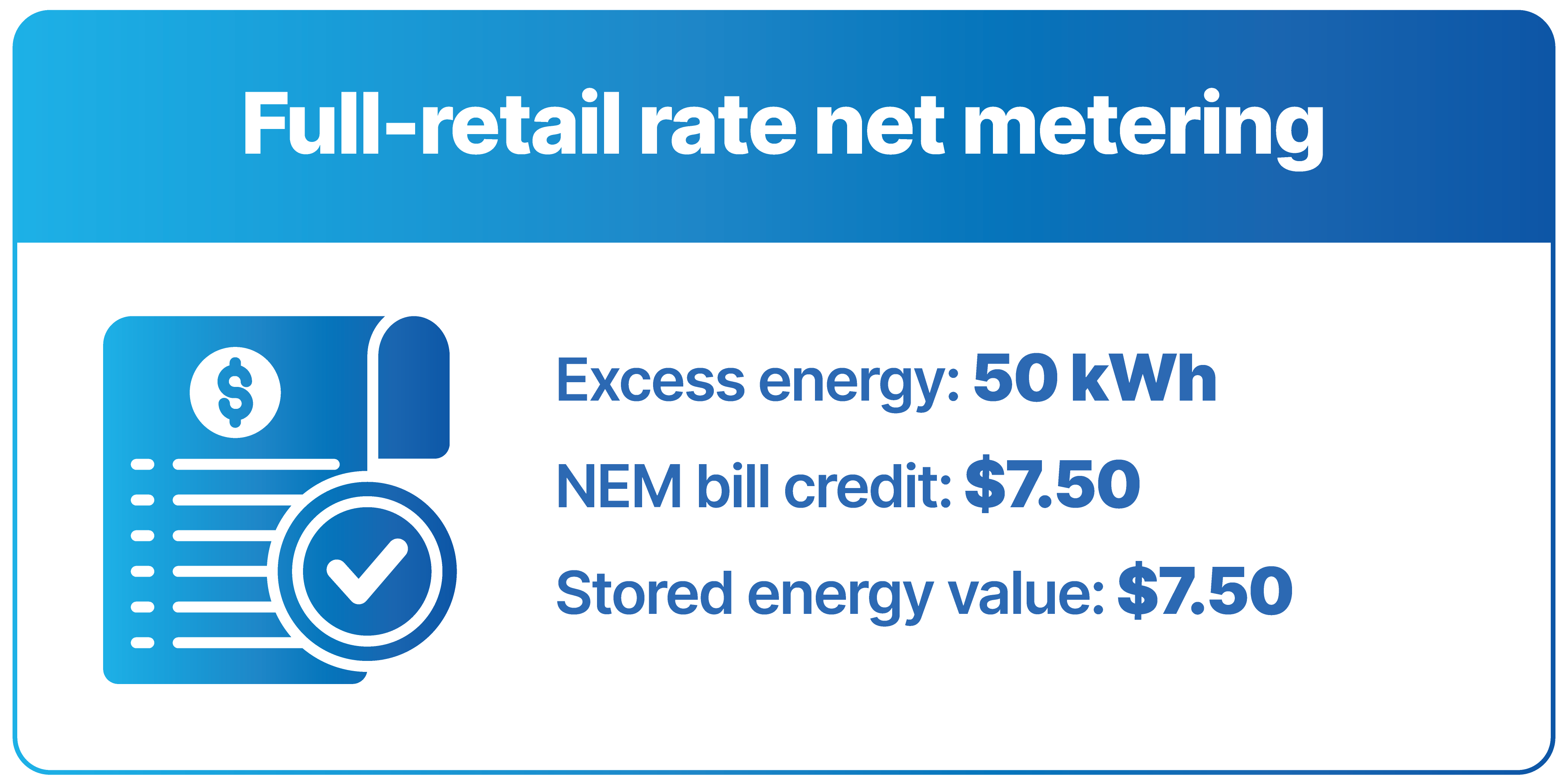
If your solar panels produced 900 kWh, but your home only used 850 kWh, you could sell that extra 50 kWh of unused energy back to your utility company at the full retail rate of electricity. Electricity prices vary quite a bit between states, but the average cost is about $0.15 per kWh.
So, with full retail net metering and an electricity rate of $0.15 per kWh, you could earn a bill credit of $7.50. If you were to store that energy, the value of it would also be worth $7.50.
In this scenario, a battery would not save you any additional money on your electricity bills. Instead, it would extend the payback period from seven years to 12 years.
Scenario 2: Time-of-Use rate net metering
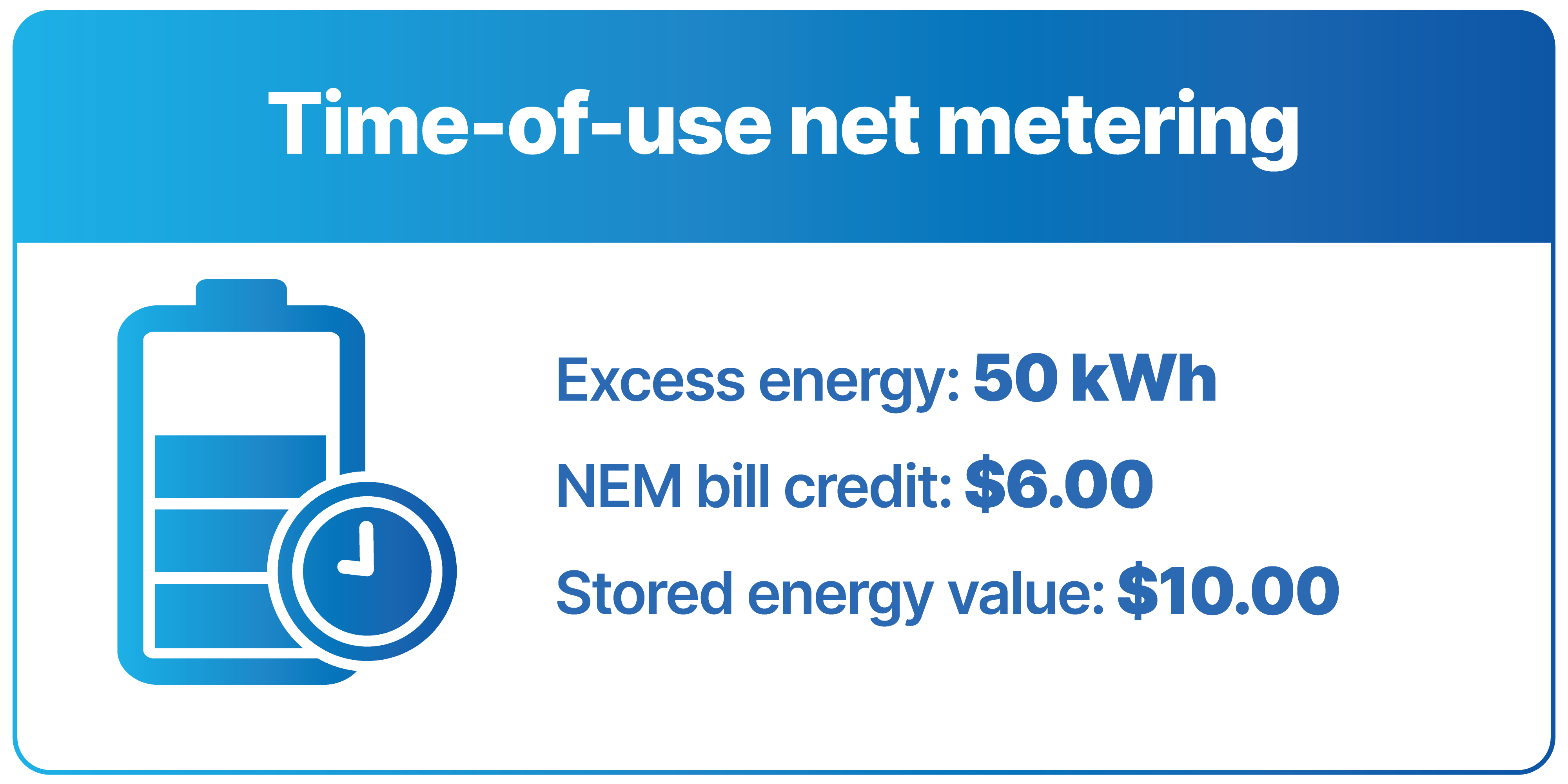
With time-of-use electricity rates, utilities charge you more during “peak times” and less during “off-peak times.” Solar panels generally produce the most energy during off-peak times when electricity is the cheapest.
We’ll assume that 50 kWh of excess energy was all produced during off-peak hours when the utility charges $0.12 per kWh. Most utilities with time-of-use net metering require off-peak excess generation to only offset future off-peak usage or only be worth the off-peak amount. This means that excess solar power generated during off-peak hours will never fully cover the cost of energy you take from the grid later in the day.
Under time-of-use net metering, the 50 kWh generated during off-peak hours would be worth $6.00 for this example. If you have a battery, however, the savings work out a bit differently.
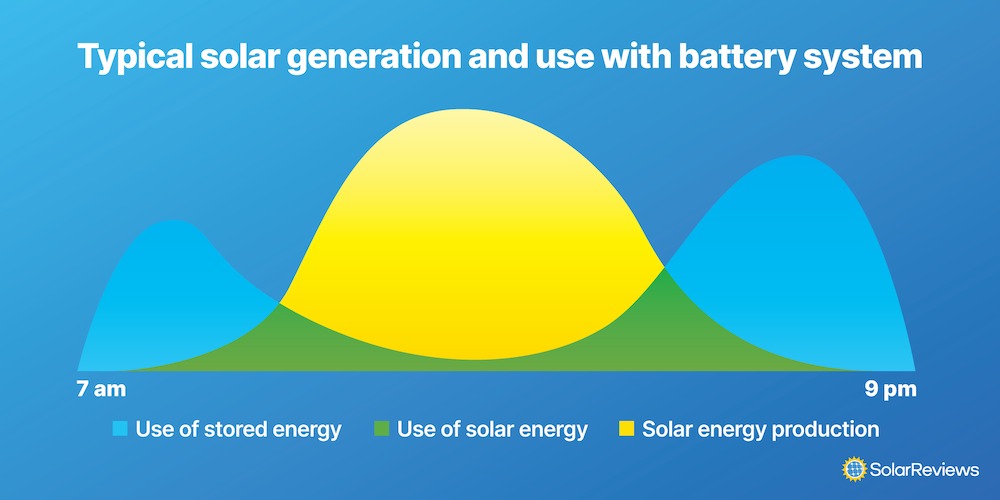
Pairing a system with a battery can actually save you more on your electricity bill if your utility uses time-of-use net metering. Instead of sending excess off-peak energy to the utility and getting off-peak credits, you send the extra energy to your battery. Then, when you use that stored energy later, you avoid taking electricity from the grid entirely, effectively giving you the full retail value of electricity.
In this example, excess energy stored in the battery would save you $10 because you used stored energy during on-peak hours instead of taking energy from the utility. However, getting a battery would still extend your payback period from 10 years for stand-alone solar to 15 with a battery.
Scenario 3: Avoided-cost net metering
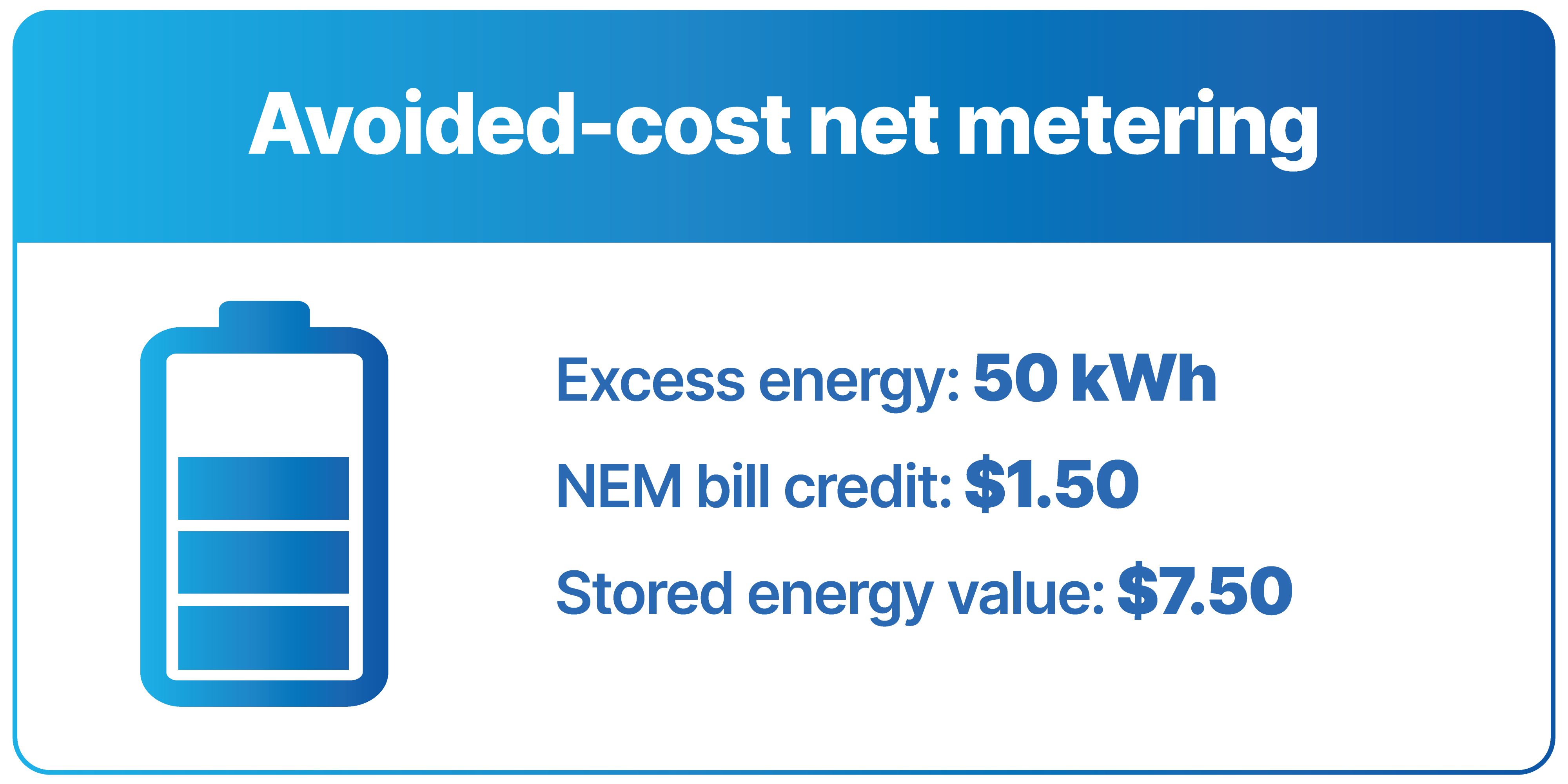
With avoided-cost net metering, your extra 50 kWh would be valued at the avoided-cost rate. We’re going to assume these credits are netted monthly, meaning solar generation up to your monthly usage is valued at the full retail rate, and any leftover at the end of the month is valued at the avoided cost.
The avoided cost rate for many utilities sits somewhere around $0.03 per kWh, making the bill credit under this avoided cost rate net metering example $1.50.
A battery can help you save more money than avoided-cost net metering. Instead of sending the 50 kWh to the grid for a $0.03 credit, you can store it in a battery. When you use that stored energy later in the day, you save the full retail value of electricity because you didn’t use electricity from the utility at all.
The value of the stored energy in this example would be $7.50, which is much higher than the net metering bill credit of $1.50. Even though the battery would increase your savings, it would still make your payback period longer.
Net metering is being phased out
Full retail rate net metering is one of those incentives that seems too good to be true, and it’s a cost many utilities no longer want to pay out. As net metering is getting slashed, the solar industry is struggling.
Take California, for example. Once a leader in solar energy, the state didn’t even make our list of the best solar states this year because of its drastic changes to net metering.
Now, Californians have access to net billing, a complicated rate structure that has severely impacted solar savings. Net billing has made it so systems with solar batteries actually have the same, or close to the same, payback period as solar panels without batteries.
Additional reading: How many solar batteries do you need in California?
It won’t surprise us if other states start to follow California’s lead, making batteries a better financial investment in the future.
Other benefits of solar batteries
While cost and savings are important, different circumstances could make a battery more attractive.
For example, solar panels alone can’t keep your lights on during a power outage. Adding a solar battery, however, lets you use your stored energy as a backup power source!
Batteries are also great for homeowners who want to maximize the amount of renewable energy they use to power their homes.
Should you add a solar battery storage system?
Ultimately, if your state has good net metering policies and your only concern is saving and earning money, do not buy a battery.
But if your state has bad net metering policies, no net metering at all, or uses Time-of-Use utility rates, a battery makes sense for you.
The best way to find out if solar batteries are worth it near you is by connecting with local solar companies. Get quotes from multiple installers and ask them if the economics of a battery make sense in your area!
Ana is the Marketing & Communications Manager at SolarReviews, working within the solar industry since 2020. With a Master's in Climate and Society and professional experience in marketing, she helps communicate the value of solar to homeowners and build awareness of the SolarReviews brand. On weekends you can find her at the Jersey shore, reading a book from the ever-increasing stack on her side table, or eating food someone else cooked....
Learn more about Ana Almerini